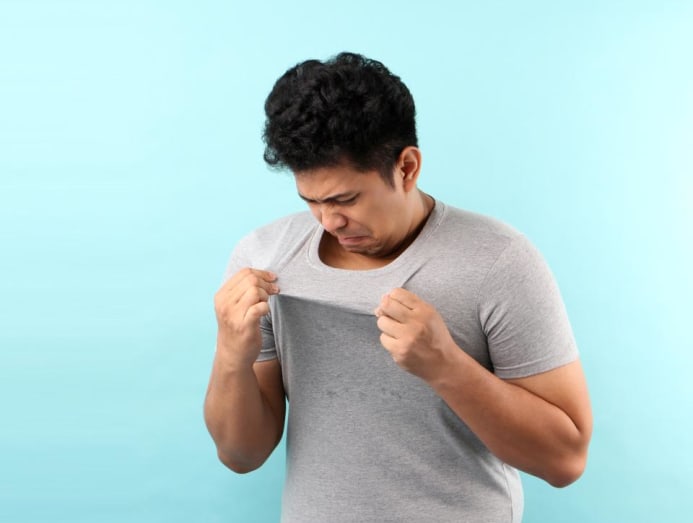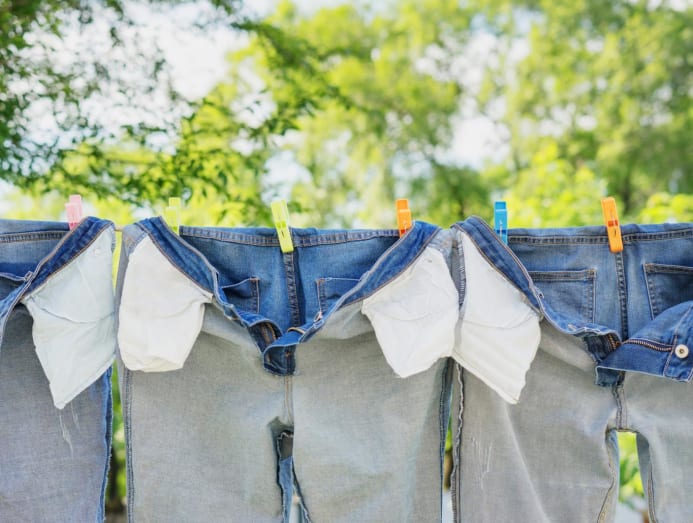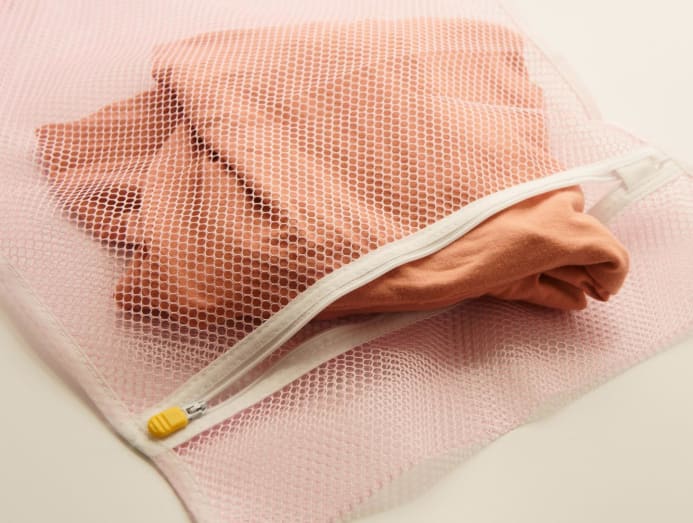From jeans to underwear to socks: How often should you be washing your clothes?
Is there a magic number? A laundry expert tells CNA Lifestyle which items of clothing you can get away with washing less frequently – without compromising on personal hygiene of course.

Are you washing your clothes too often? (Photo: iStock)
Keeping clean and doing the laundry daily is a must for many of us in Singapore, especially with the weather being so humid and hot in recent months. But since we don’t all lead the same lifestyle – and some of us may some of us may sweat more than others – whether you “re-wear” your clothes is a matter of personal preference.
With no real right or wrong answer, we are left to wonder exactly how often we should be washing our clothes. Those who are particular about cleanliness may argue that more is more while there will be those who think of washing (their clothes) as a last resort.
But when it comes specifically to the quality of your clothes at least, there is such a thing as “overwashing” these. Chan Weitian, manager of Presto Drycleaners, explained that washing is one of the factors that can cause your garments to degrade.
HOW WASHING AFFECTS CLOTHES
First of all, Chan noted that every garment has a different lifespan, which is influenced by various factors such as the item type, fabric composition and construction techniques employed. “It is not specifically a matter of ‘overwashing’ that damages the garment, but rather a consideration of the overall maintenance – how the garment is cared for,” he said. Of course, how often a garment is worn is one of the factors too.

Generally speaking, items like socks and undergarments are the first to become worn out, followed by garments that are worn regularly – such as men’s shirts, pants, women’s tops and dresses, and uniforms, while outerwear (typically made with sturdier fabrics) and formal wear (which usually aren’t worn frequently) will have a longer lifespan.
Washing is one of the factors that can cause your garments to degrade.
“The act of washing clothes involves necessary agitation to effectively remove dirt and stains, but it is worth mentioning that this process can also have a weakening effect on the fabric fibres. Therefore, it is true that washing clothes does contribute, to some extent, to the deterioration or weakening of the garments over time,” he added.
WHAT CLOTHES TO WASH AFTER EVERY WEAR
“It is generally recommended that clothing items worn in direct contact with the body are washed after each wear, for reasons of personal hygiene. These garments tend to come into contact with sweat and oil secreted by the body, which can lead to the accumulation of bacteria and odours,” said Chan.

These include items such as men’s shirts, T-shirts, pants and inner wear, and for women – dresses, tops, bottoms – unless they have been worn for only a very short period of time and in an environment or situation where you did not break a sweat. Socks, workout gear and undergarments, of course, should be washed after every wear, except perhaps for bras that have been worn very lightly.
Ultimately, the decision on how often to wash clothes should be based on personal judgement, said Chan, taking into consideration factors such as comfort, cleanliness, and the specific needs of each individual. In other words, when in doubt, use common sense and, perhaps, also employ your sense of smell.
GARMENTS THAT CAN DO WITH LESS WASHING
Whether jeans should ever be washed is famously a subject of controversy. “For denim enthusiasts, multiple washes can cause the colour to fade, which is not desirable for those seeking to maintain the original look of the jeans. As a result, some individuals choose not to wash their jeans at all, opting for spot-cleaning or airing them out instead. However, it is important to note that this practice varies among individuals, and each person may have their own preferences and reasons for their washing routines,” said Chan.

To some, not washing their denims at all may be too extreme, but even if you’re all for washing them, know that jeans do not need to tossed into the washer after every single wear. Doing so may alter their shape and colour prematurely – you may not want to wear them anymore when that happens. Washing them after three to five wears is suggested, although it’s up to how quickly your jeans get dirty and your comfort level regarding that.
Outerwear such as jackets, coats and blazers generally require less frequent washing. “Since they are typically worn over other garments and are not usually in direct contact with the body, they tend to accumulate less sweat and odour. However, it is important to consider external factors such as climate and personal circumstances. In Singapore, for instance, the heat and humidity may necessitate more frequent washing of outerwear compared to regions with milder weather,” said Chan.
HOW TO KEEP YOUR CLOTHES IN A FRESH STATE
There are also ways to “freshen” your clothes so that you can wear them once or twice more before you wash them. Steaming them will straighten the fabric and also provide some level of sanitising effect, while spritzing on a garment freshener can lift odours and help kill germs.

Another way to extend the time between washes is to layer your clothes. Wearing lightweight inner wear under your clothes can reduce the amount of contact the garment has with your skin, thereby keeping them fresher for longer.
HOW TO LESSEN THE IMPACT OF WASHING ON GARMENTS
Chan pointed out a few methods to protect clothing during the cleaning process. “Using a gentler detergent and opting for hand-washing instead of machine-washing can help minimise potential damage. Additionally, choosing a front-load washer over a top-load washer reduces mechanical action. Using room-temperature or cold water instead of hot water is also recommended,” he shared.

Laundry bags actually do protect your garments while they are being churned in the washing machine. “Putting your delicate clothing in laundry bags will ensure that the fabric doesn’t get caught by things like zipper teeth of jeans or hard accessories on garments, such as buttons and buckles,” Chan added.
Read this story in Bahasa Indonesia here.










